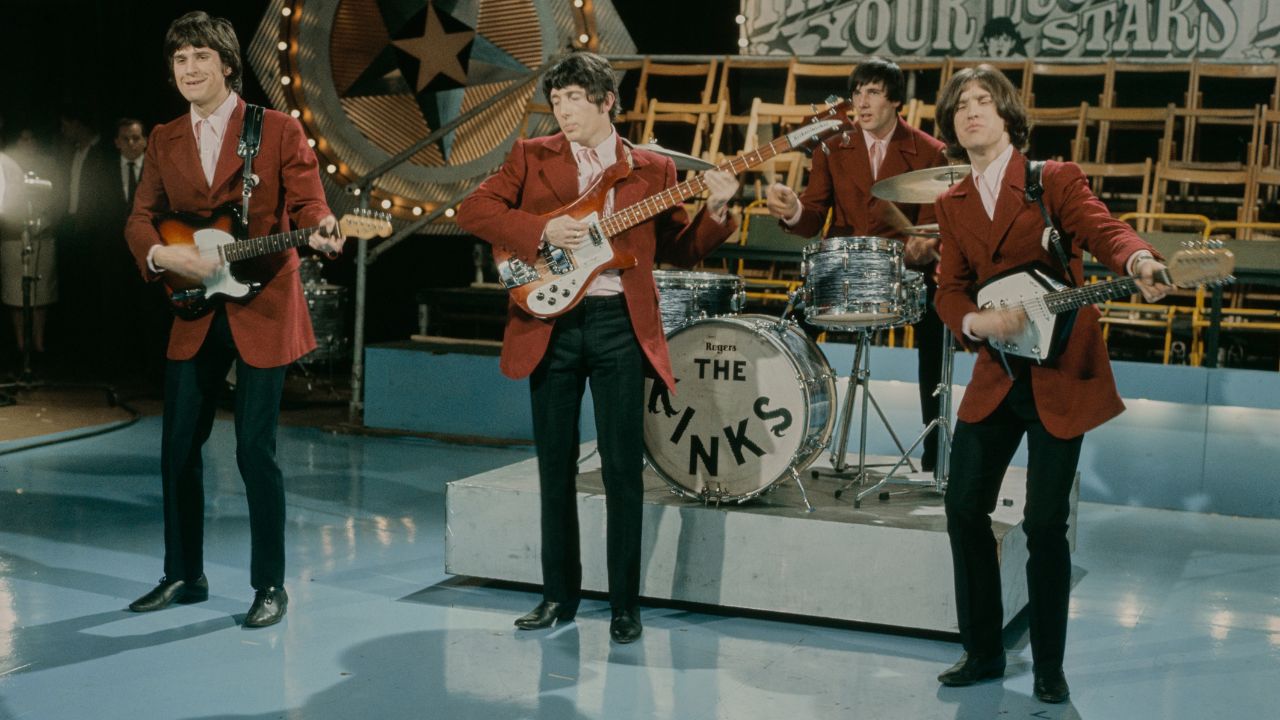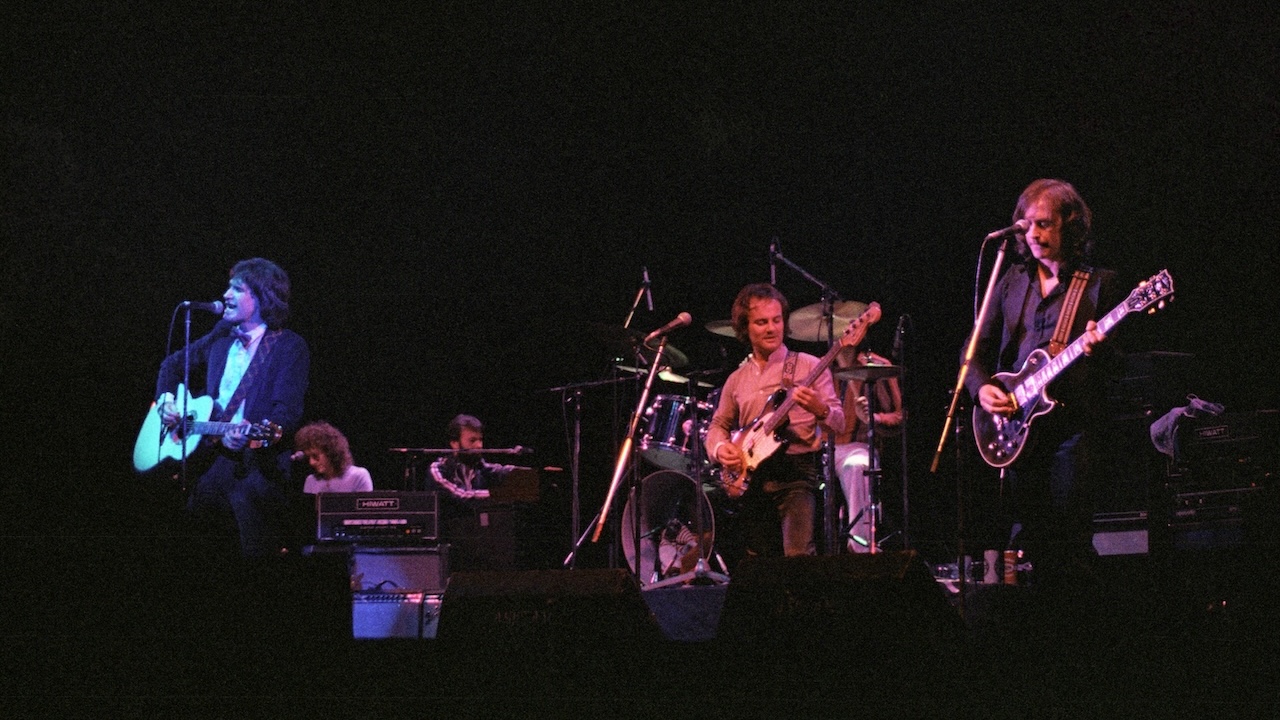
From the powerful bass tone on 1964's You Really Got Me to their last album, 1993's Phobia, smart low-end was a key ingredient of the Kinks sound. And though Pete Quaife rightly gets credit for jumpstarting the bass chair on their first seven albums, John Dalton and Jim Rodford logged the most time with the legendary British band led by Ray and Dave Davies.
Dalton, who got the gig when Quaife broke his leg in a 1966 car accident, is known for basslines that are big, burly, and extroverted, like the former coal laborer himself.
When Quaife returned, but left for good in early 1969, Dalton stayed on, pushing the band forward on classic albums Arthur (Or the Decline and Fall of the British Empire), Lola Versus Powerman and the Moneygoround, and Muswell Hillbillies, before quitting in November 1976 following the sessions for Sleepwalker.
“I’d had enough of the band, and except for Ray and Dave, who had their songwriting royalties, and Mick, we weren't getting the money we deserved," Dalton told Bass Player.
“When I joined, I made the terrible sin of not signing anything, which would have made me a quarter of the company. I left the Kinks without a penny to my name. Nothing. I was bitter for a while, but I've got a great legacy with the Kinks. I feel really privileged to have been in the band.”
Andy Pyle, Dalton's successor, lasted only one album, with the late Jim Rodford bringing an artier, more reserved style to the band's final phase, including 1979's Low Budget and their last big hit, Come Dancing, from State of Confusion.
The Kinks officially disbanded in 1996, but Dalton and Rodford went on to play the repertoire in the Kast Off Kinks, the band formed in 1994 by Dalton, ex-Kinks keyboardist John Gosling, and longtime Kinks drummer Mick Avory.
Five decades after Quaife parted ways with the Davies brothers, we asked Dalton and Rodford about being in the band.
The following interview from the Bass Player archives took place in May 2016.
What bass did you use when you joined the band in 1966, John?
John Dalton: “I didn't have a guitar, so the band told me I could use Pete's bass. He had a Danelectro, and it was the awfulest sound I'd ever heard. It was so trebly. I said, ‘No, I can't play with that.’
“So, they had to rush out and get a Fender Precision that I could play. I used a different bass guitar, a Rickenbacker, only on Preservation Act 1 and Preservation Act 2. There were some bits that needed a strange sound, something a bit more trebly, like you'd get on a Rick.”
The years between 1966 and 1971 – from Face to Face, the first record you played on, to Muswell Hillbillies – are widely considered the band's golden period. Do you agree?
John Dalton: “Well, I recently read that Dave Davies thinks Arthur was one of the best albums we ever made. As a live band, the early '70s represented the best the Kinks ever played. The band was tight, and Dave was really playing well.”
When did you decide playing music could be a viable career, Jim?
Jim Rodford: “When the Beatles started happening in 1963, I and a lot of other musicians decided to turn professional. By this time, I had got a Fender Jazz Bass and one of the early Vox amps. I was in the Mike Cotton Sound (whose brass section toured and recorded with the Kinks), and that's when I met the band.”
But you didn't join them until 1978, when Andy Pyle left.
Jim Rodford: “I got a phone call from them, saying, ‘We've got an American tour coming up – are you free?’ After my first month, Ray just stopped me on the street one day and said, ‘Do you want to make it permanent?’”
When you joined, the band's popularity was at a low point, but thanks to the Low Budget album, the Kinks were suddenly playing arenas.
Jim Rodford: “Yes, everything changed very quickly, practically overnight. The band was great, and the crowds were picking up on it. That's what made One for the Road probably the biggest live album we ever had.”
How did you approach playing those hits from the '60s and early '70s?
Jim Rodford: “My intention was to stick as closely as possible to what Pete and John had done – as a fan, I wouldn't want to hear those songs played any differently.”
Of all the Kinks albums you played on, what’s your favorite?
Jim Rodford: “Low Budget, I suppose, because it represents my first recordings with the band, and it did so well.”
What did you use on Come Dancing?
Jim Rodford: “I had been using a Fender Mustang, and I'd just gotten a German bass amp, a Dynacord. It didn't really take off in America, but it was a very good, efficient 18" combo amp with an external speaker.”

Did you use a pick?
Jim Rodford: “Always, and one that has a reasonable amount of give to it.”
John Dalton: “I use a heavy pick because I still play like l'm a builder. I like to push things along.”
What bass do you play these days?
Jim Rodford: “A headless Status, my ‘magic wand.’ The graphite through-neck plays like a dream, and without a headstock, it's very light.”
John Dalton: “An early '70s Precision. There's hardly any lacquer left on it because I play hard, but it has nice action. When I go on an airline, I try to explain that it's irreplaceable. I mean, anyone can go out and buy a new Precision, but it's nothing like the '60s or early '70s ones.”
What about your strings?
Jim Rodford: “When I was in the Mike Cotton Sound, we did a lot of gigs with the Who, and John Entwistle told me to try Rotosounds. What a sound! They endorsed me right through my Kinks time, and then I went with GHS Boomers.”
John Dalton: “For a long time, I'd use Fender strings. Now I use Rotosound wire-wound strings all the time.”







